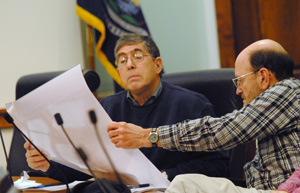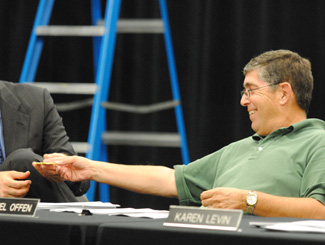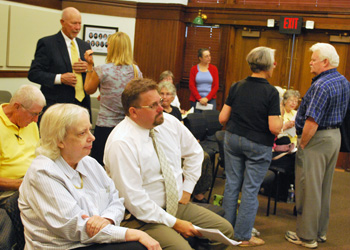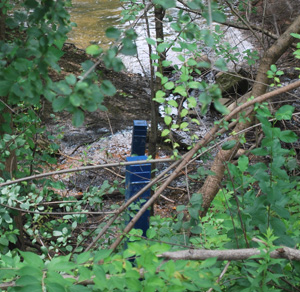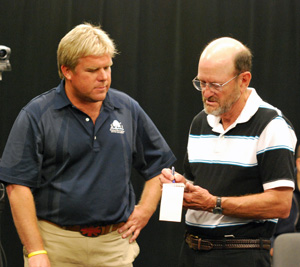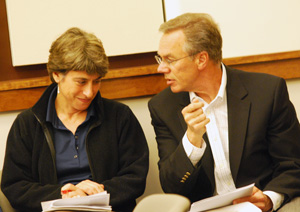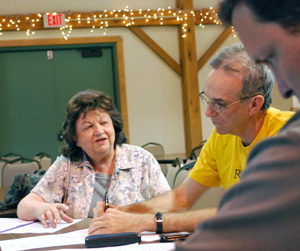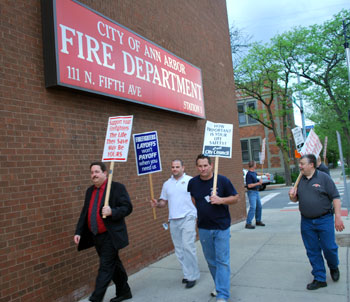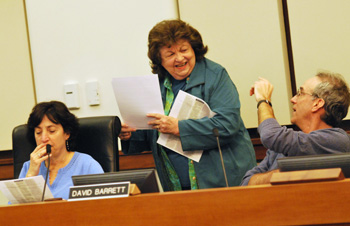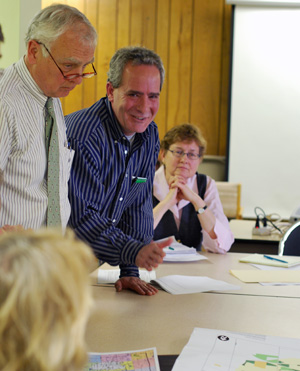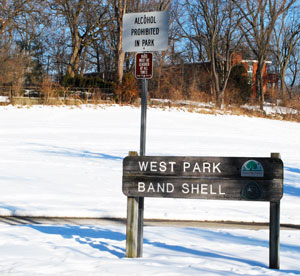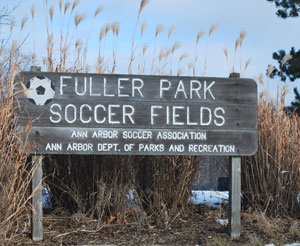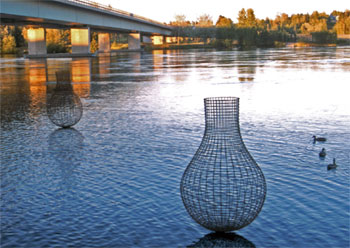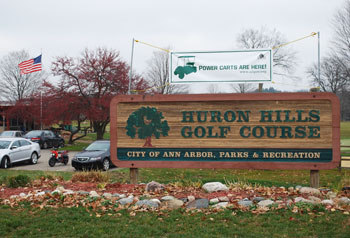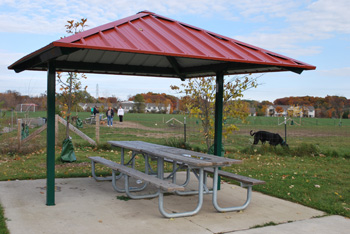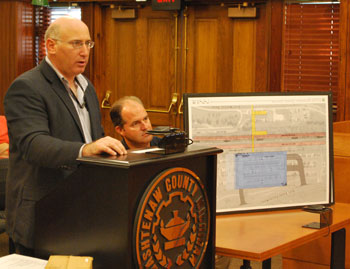Ann Arbor park advisory commission meeting (Oct. 19, 2010): Though the proposal facing park advisory commissioners wasn’t directly related to the question of whether to keep or remove Argo Dam, PAC heard from nearly a dozen people during public commentary who aired their views on that topic.
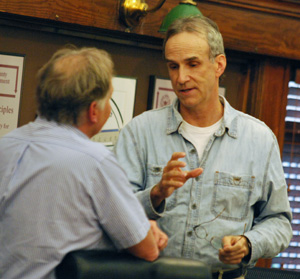
Dave Barrett, right, talks with fellow park advisory commissioner John Lawter prior to the start of PAC’s Oct. 19 meeting. Barrett represented PAC on a selection committee that recommended reconstruction of the Argo Dam headrace and embankment. (Photos by the writer.)
The resolution that PAC ultimately approved was a recommendation to build a bypass channel in the Argo Dam headrace for $988,170, and to add whitewater features for an additional $180,000. The $1,168,170 project would be designed by Gary Lacy of Boulder, Colo., and built by TSP Environmental, a Livonia firm.
City staff said this was the only proposal submitted that met the requirements laid out in the city’s request for proposals (RFP). The plan calls for removing the canoe portage, replacing it with a series of “drop pools” so that no portage is required. The project will also improve accessibility of the path – which is part of Washtenaw County’s Border-to-Border trail – and address problems in the headrace embankment that were identified by state officials. The work is tied to a consent agreement that the city reached with the state in May, laying out steps that the city must take to deal with some long-outstanding structural issues.
Commissioner Tim Berla voted against the resolution, calling it a “protest vote” because removal of Argo Dam hadn’t been considered as an option – that same point was made by several speakers during public commentary. Park staff has indicated that this project doesn’t preclude removing Argo Dam in the future, if that’s a decision that the community makes.
Funding for the project is available from the city’s Parks Rehabilitation & Development millage and the drinking water fund, according to city staff. An additional $50,000 might be available from the Washtenaw County Parks & Recreation Commission, to help pay for a portion of the project related to the county’s Border-to-Border trail.
Several people – both commissioners and speakers during public commentary – questioned the appropriateness of using the water fund for this purpose, saying that Argo dam has nothing to do with drinking water. Local attorney Scott Munzel argued that using the water fund to pay for dam-related projects might be illegal, based on case law, because it’s being used as a way to skirt the Headlee Amendment. Munzel is a board member of the Huron River Watershed Council, which has lobbied vigorously to remove the dam for environmental reasons.
The proposal for reconstruction of the headrace and embankment will now be forwarded to city council.
Also at Tuesday’s meeting, PAC members heard an update from parks staff about this season’s activities at the city’s three outdoor public pools – at Buhr, Fuller and Veterans Memorial parks. The former supervisor for Buhr Park Pool, Gayle LaVictoire, also gave a brief presentation to commissioners about her new job as volunteer outreach coordinator for the parks system, a newly created position.
And at the end of the meeting, Colin Smith, manager of parks and recreation, announced that the Ann Arbor Senior Center received more residents’ votes than other city facilities in a recent contest sponsored by Stonyfield Farm, and will receive $15,000 from that firm. [Full Story]




